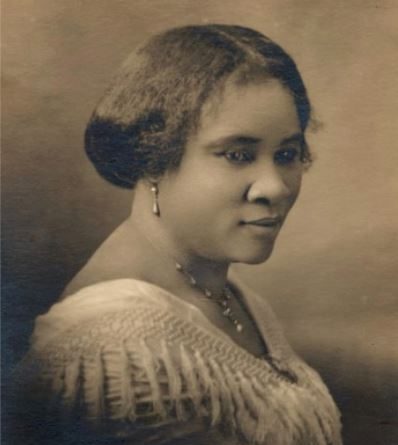Black History Month is all about remembrance, and while Dr. Martin Luther King, Jr. played an important role in moving America forward, it is also important to credit other black historical figures who contributed to the betterment of America as well.
Madam C.J. Walker is an unsung name that deserves more credit for her involvement. As one of the first black female entrepreneurs, she paved the way and showed younger generations that it is not impossible to achieve greatness. She not only rose from poverty but used her accumulated wealth to better advocate for black Americans and to end hate.
On December 23, 1867, Madam C.J. Walker was born as Sarah Breedlove. Her parents were Louisiana sharecroppers who were previously born into slavery, and their fifth child, Sarah, was the first in their family to be born free due to the Emancipation Proclamation.
Years after her birth, her parents died, orphaning her at a young age. Seven years later at age 14, she married Moses McWilliams and gave birth to a daughter.
Due to the stress of her life and her physical labor taking a toll on her health, Walker started to notice her hair thinning. In 1904, she began using “The Great Wonderful Hair Grower” created by African American businesswoman Annie Turbo Malone. She later joined Malone’s team of black women sales agents. A year later she moved to Denver, Colorado where she met and married Charles Joseph Walker, an ad man.
She renamed herself “Madam C.J. Walker” and with her $1.05 in her pocket, she launched her line of hair products and straighteners for African American women.
The brand name “Madam Walker’s Wonderful Hair Grower” gained popularity from her husband’s ties to advertising. Her hair loss inspired her to come up with a treatment that would become revolutionary to hair care.
Walker created a method known as the “Walker System” which included scalp preparation, lotions, and iron combs. Her product gained popularity from her placing emphasis on the health of the women who would use it.
As her business grew, Walker and her husband grew apart. They soon divorced and Walker moved on to Indianapolis and built her own manufacturing company. To aid in the movement of black women’s economic independence, she opened training programs for her national network of licensed sales agents.
She not only employed 40,000 African American women and men in the US, Central America, and the Caribbean, but also founded the National African Cosmetics Manufacturers Association in 1917.
Walker’s business skyrocketed as her sales increased past $500,000. Her total worth was $1 million, including a mansion in New York, and properties in Harlem, Chicago, Pittsburgh, and St. Louis.
As her final years approached, she did not stop distributing her wealth for a good cause. Walker increased her philanthropic and political outreach by contributing to the YMCA, covering tuition for six African American students at the Tuskegee Institute, and donating $5,000 to the NAACP’s efforts.
As kidney failure unfortunately started to take her strength, she revised her will, giving two-thirds of her net profits to charity, as well as thousands of dollars to various schools.
It’s important to credit those names who are neglected by time. Each person in history, like Madam C.J. Walker, contributes just as much importance as everyone else. To be able to acknowledge these moments in history and to give Walker the recognition that she deserves is something of great significance.







